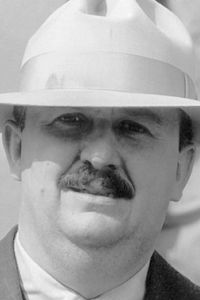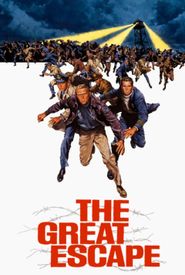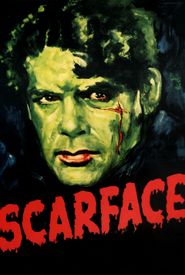W.R. Burnett, a renowned writer in the realm of screen history, has made an indelible mark on the world of cinema, leaving behind a legacy of timeless and iconic moments.
Born in Springfield, Ohio, in 1899, Burnett's early life was marked by a stint in a civil service job, which he left in 1927 to pursue a career in writing. By the time he was 28, he had penned over a hundred short stories and five novels, all of which remained unpublished.
It was during his time in Chicago, where he worked as a night-clerk in a seedy hotel, that Burnett found himself surrounded by a diverse array of characters, including prize-fighters, hoodlums, hustlers, and hobos. These individuals would later serve as the inspiration for his novel "Little Caesar," which was published in 1929 and went on to become a classic film in 1931, starring Edward G. Robinson.
Burnett's success with "Little Caesar" led to a job as a Hollywood screenwriter, and he went on to work on numerous projects, including "Scarface" in 1932, which further cemented his reputation as a master of the crime genre.
Throughout his career, Burnett was known for his unique ability to craft complex and nuanced characters, often exploring themes of corruption, morality, and the human condition. His work was marked by a sense of realism and authenticity, and he was praised for his ability to bring gritty, hard-boiled characters to life on the screen.
Burnett's characters were often flawed and troubled, struggling to find redemption in a world that seemed determined to deny it to them. His work was marked by a sense of hopelessness and despair, but also by a deep sense of humanity and empathy.
Throughout his long and illustrious career, Burnett worked with many of the greatest directors and actors of his time, including John Huston, John Ford, Howard Hawks, Nicholas Ray, Michael Cimino, Humphrey Bogart, Ida Lupino, Paul Muni, Frank Sinatra, Marilyn Monroe, Steve McQueen, and Clint Eastwood.
Burnett's impact on the world of cinema cannot be overstated. He was a true master of his craft, and his work continues to be celebrated and studied by filmmakers and scholars around the world. Despite his passing in 1982, Burnett's legacy lives on, and his influence can be seen in the work of countless filmmakers who have followed in his footsteps.
Person Biography:
W.R. Burnett was born on September 16, 1899, in Springfield, Ohio. He began his career in writing in the 1920s, penning short stories and novels that were largely unpublished. He moved to Chicago in the late 1920s, where he worked as a night-clerk in a seedy hotel and began to develop the characters and themes that would later become the hallmark of his work.
Burnett's big break came in 1929 with the publication of his novel "Little Caesar," which was later adapted into a classic film in 1931. He went on to work as a Hollywood screenwriter, penning scripts for a wide range of films, including "Scarface," "High Sierra," and "The Asphalt Jungle."
Throughout his career, Burnett was known for his unique ability to craft complex and nuanced characters, often exploring themes of corruption, morality, and the human condition. He worked with many of the greatest directors and actors of his time, and his work continues to be celebrated and studied by filmmakers and scholars around the world.
Burnett passed away on April 4, 1982, at the age of 82, leaving behind a legacy that continues to inspire and influence filmmakers to this day.


































































